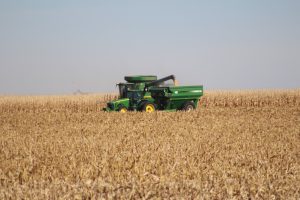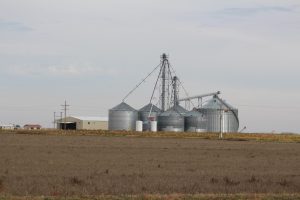ABA Testifies Before House Ag Committee on Financial Conditions in Farm Country

The American Bankers Association provided testimony before the House of Representatives Committee on Agriculture today offering the banking industry’s views on the financial conditions in farm country. Tony Hotchkiss, current chair of ABA’s Agriculture and Rural Bankers Committee, testified on behalf of ABA. Hotchkiss has more than 40 years of experience in agricultural banking, including 10 years with Regions Bank, where he recently retired after leading agricultural banking.
In his testimony, Hotchkiss emphasized the critical role banks play in the agricultural economy as a primary source of credit to farmers and ranchers across the United States. He pointed out that at the end of last year, more than 3,800 banks in the U.S. had agricultural loans on their books with a total outstanding portfolio of $198.6 billion. Hotchkiss also discussed the important role of highly specialized agricultural lending banks – or farm banks – in America’s economy.
“In 2023, farm banks – banks with more than 14.32 percent of their loans made to farmers or ranchers – increased lending by 6.7 percent to meet the rising needs of farmers and ranchers, and now provide $110 billion in total farm loans,” said Hotchkiss. “Farm banks are an essential resource for small farmers, holding more than $44.6 billion in small farm loans, with $9.2 billion in micro-small farm loans (loans with origination values less than $100,000). Farm banks are healthy, well-capitalized, and stand ready to meet the credit demands of our nation’s farmers large and small.”
While farm banks are prepared to manage potential economic headwinds, Hotchkiss explained that many producers have worked through the liquidity and working capital they built up in recent years due to rising input prices and lower commodity prices.
“Across the industry, many bankers believe they may be ‘looking over a cliff’ in regard to the agricultural economy without changes to current government policy,” said Hotchkiss. “This includes adjustments to reference prices and ensuring that crop insurance covers loss appropriately for producers. Additionally, bankers desire a faster payment system in the event of natural disasters. Waiting over a year to receive disaster payments can create unnecessary credit crunches that ultimately hurt agricultural producers and their access to credit.”
Hotchkiss also commended the important improvements to the credit title of the 2024 House Farm Bill, most notably the increase in the FSA Guaranteed Farm Ownership Loan Program to $3.5 million and the FSA Guaranteed Farm Operating Loan Program to $3 million.
“As the cost of agriculture continues to increase, it is vital to have the FSA loan programs keep pace with modern agriculture,” he said. “These new limits will achieve that goal.”
In his testimony, Hotchkiss reiterated ABA’s strong support for H.R. 3139, the Access to Credit for our Rural Economy Act, also referred to as the ACRE Act, which was introduced by Representative Randy Feenstra (R-IA) and Representative Wiley Nickel (D-NC).
“This legislation will help to lower lending costs for farmers, ranchers, and rural communities,” he said. “ACRE would remove the taxation on income earned from interest on agricultural real estate loans, and for loans for rural residences in a population area of less than 2,500 people with a mortgage value of less than $750,000. By removing this taxation, banks will be able to lower their interest rates, which helps to lower costs for borrowers.”









